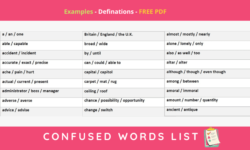How AI is Revolutionizing Content Creation and Communication
In today’s digital age, the rapid advancement of artificial intelligence (AI) has transformed various industries, including content creation and communication. With the emergence of AI-powered tools and platforms, the way we generate and disseminate content has undergone a significant revolution. This transformation goes beyond mere words, incorporating elements of creativity, efficiency, and accessibility into the fabric of communication. In this article, we delve into the impact of AI on content creation and communication, exploring its capabilities, challenges, and future implications.
Redefining Content Creation
One of the most remarkable applications of AI in content creation is the development of AI generators. These sophisticated algorithms can generate high-quality academic papers, articles, and reports on diverse topics with remarkable speed and accuracy. By analyzing vast amounts of data, AI paper generators can produce coherent and well-structured content that rivals that of human authors. This capability has significant implications for researchers, students, and professionals seeking to streamline the process of content creation.
Automated Content Creation
AI-driven content creation platforms are revolutionizing the way businesses and individuals produce content. These platforms leverage natural language processing (NLP) algorithms to generate written content, including articles, blog posts, and social media posts, based on predefined parameters and objectives. By automating the content creation process, these tools enable users to generate a large volume of content in a fraction of the time it would take manually. This not only enhances productivity but also frees up human creators to focus on more strategic tasks.

Enhanced Personalization and Customization
AI-powered content creation tools are equipped with the ability to analyze user data and preferences, enabling them to deliver personalized and customized content experiences. By understanding user behavior, preferences, and demographics, these platforms can tailor content to meet the specific needs and interests of individual users. This level of personalization enhances user engagement and satisfaction, driving more meaningful interactions and conversions.
Augmented Creativity
Contrary to common misconceptions, AI is not replacing human creativity but rather augmenting it. AI-driven tools can assist human creators in brainstorming ideas, generating content, and refining creative concepts. By analyzing vast datasets and identifying patterns, AI algorithms can provide valuable insights and suggestions that inspire human creativity. This symbiotic relationship between AI and human creativity enables the creation of content that is both innovative and impactful.
Challenges and Considerations
Despite its transformative potential, the widespread adoption of AI in content creation and communication is not without challenges. Concerns surrounding data privacy, algorithmic bias, and ethical implications must be addressed to ensure responsible and equitable use of AI technologies. Moreover, the evolving nature of AI presents ongoing challenges in terms of regulation, accountability, and transparency. It is imperative for stakeholders to collaborate and develop frameworks that promote the ethical and responsible use of AI in content creation and communication.
The Future Landscape
Looking ahead, the future of content creation and communication will be increasingly shaped by AI technologies. From AI-generated content to virtual assistants and chatbots, AI will continue to play a central role in shaping how we create, consume, and interact with content. As AI algorithms become more sophisticated and capable, we can expect to see further advancements in areas such as natural language understanding, content personalization, and real-time communication. Embracing these developments while addressing associated challenges will be essential in unlocking the full potential of AI in content creation and communication.
In conclusion, AI is revolutionizing content creation and communication in ways that extend beyond words. From AI paper generators to automated content creation platforms, AI-powered tools are reshaping how we generate, consume, and interact with content. By leveraging AI technologies, we can enhance creativity, efficiency, and personalization while addressing challenges and considerations associated with their use. As we navigate the evolving landscape of AI-driven content creation and communication, collaboration and responsible stewardship will be essential in realizing its full potential.



